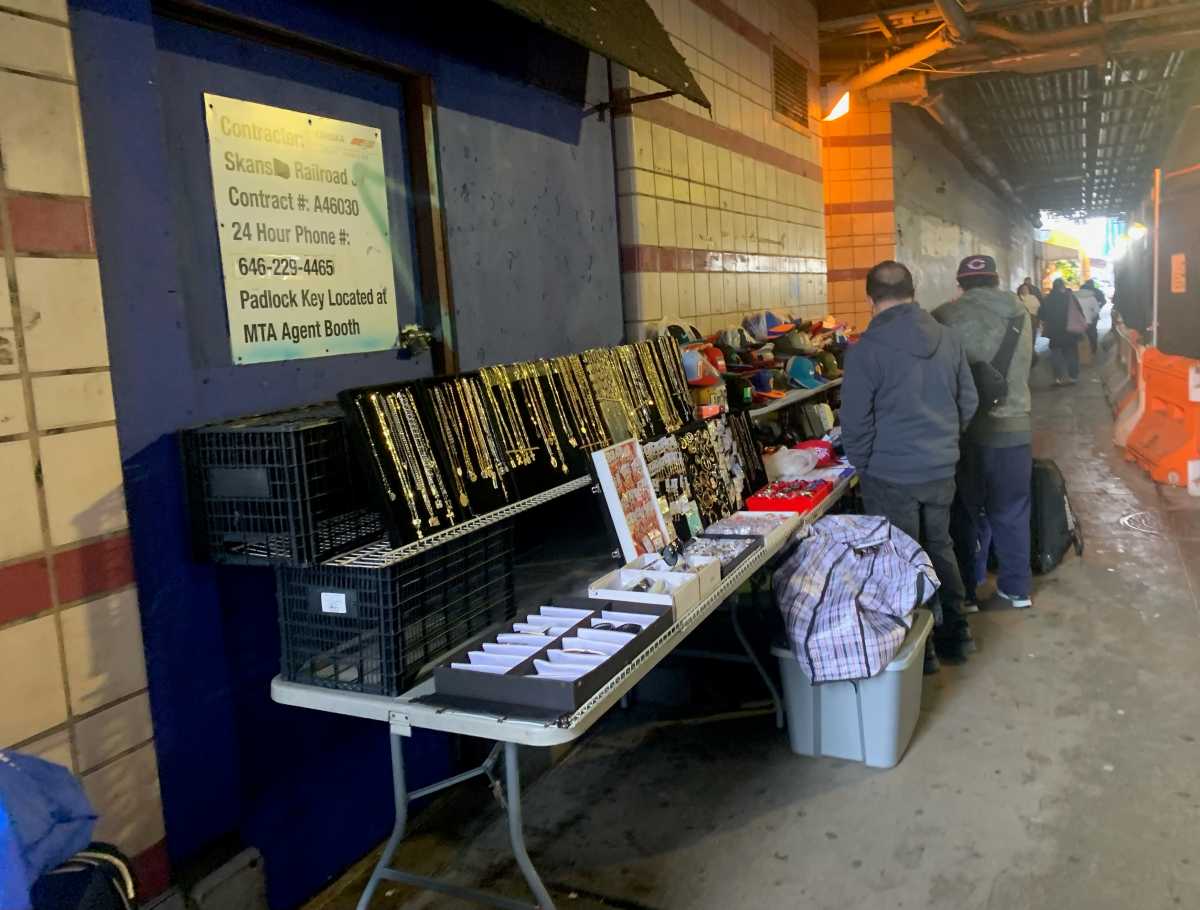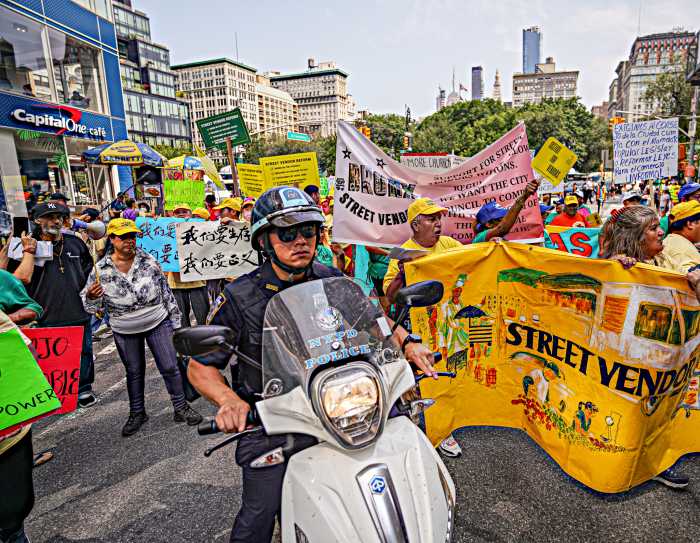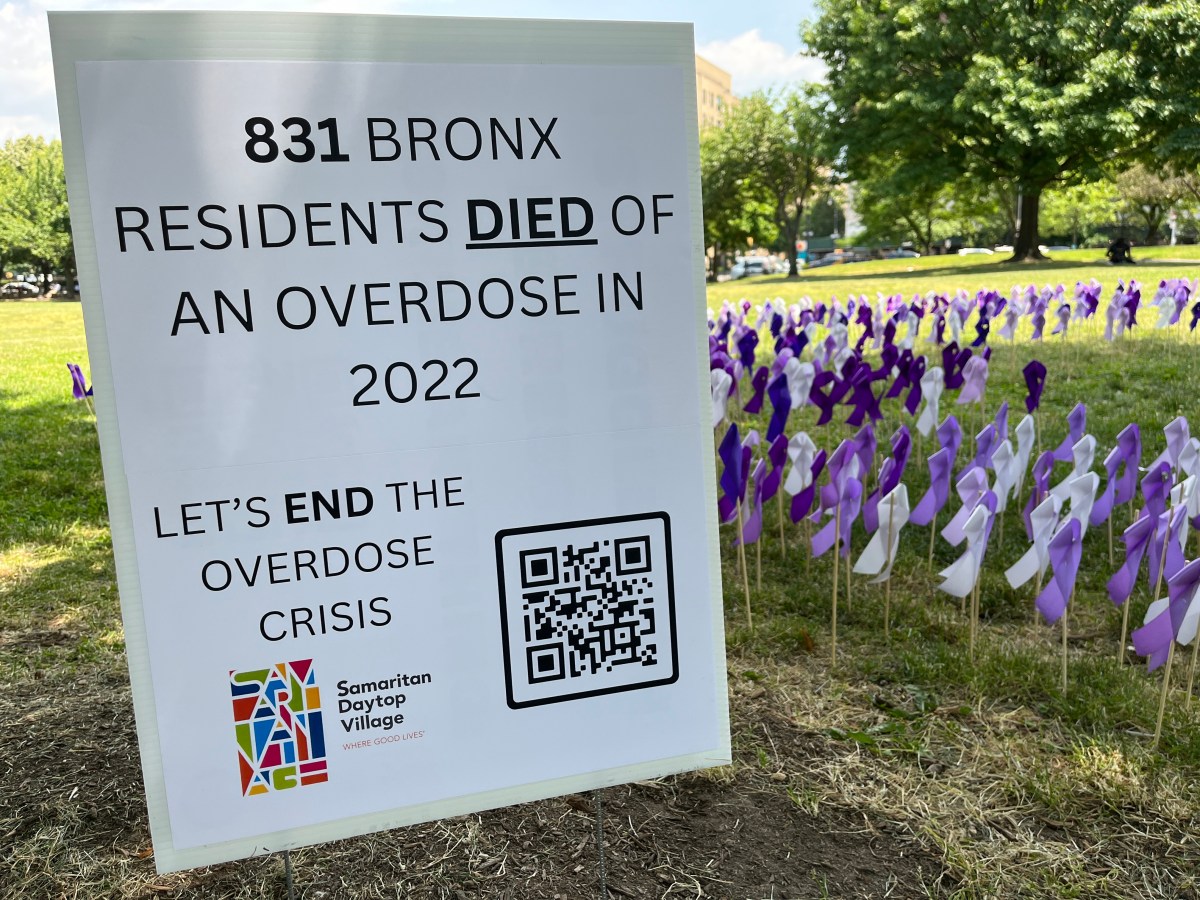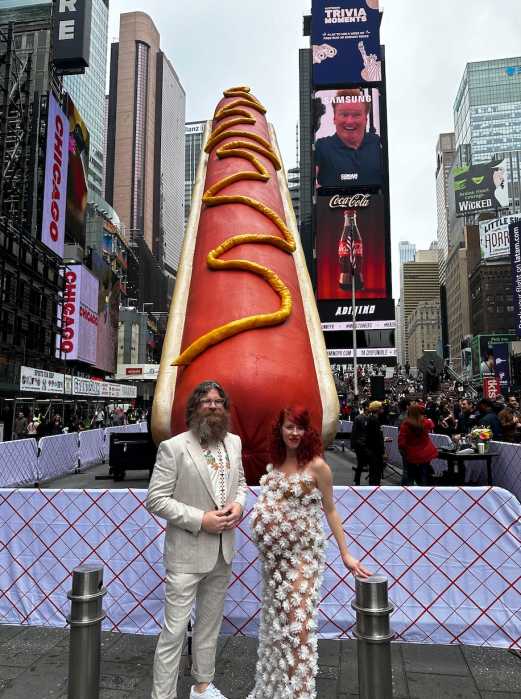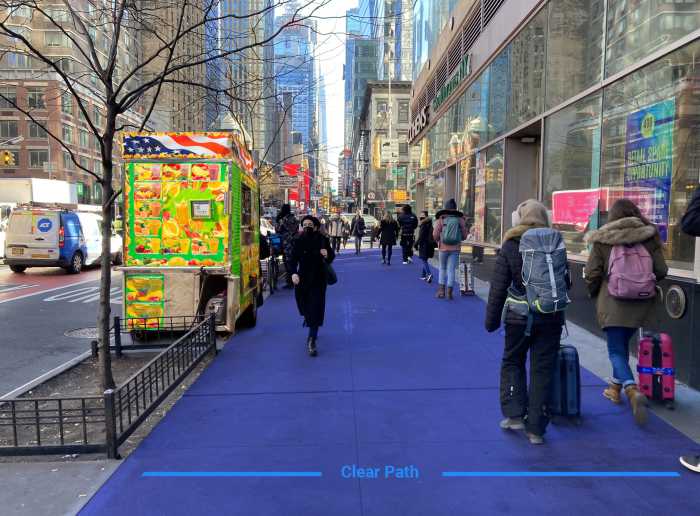Illegal vendors are a common sight throughout the city’s subway system, and not everyone is welcoming of them.
During amNewYork’s recent visit to multiple Queens subway stations, vendors sold items such as soft tacos, churros, hot coffee, and even jewelry. Shoppers browsed the displays, and many purchased a quick snack on their way to their train.
And, on a recent weeknight in Jackson Heights, the 74th Street-Broadway station mezzanine — where the E, F, M, R and 7 lines meet — was bustling with vendors, pushcarts and customers — so much so that straphangers had to weave their way through the platform to board or find a comfortable spot to wait for a train.
Of course, subway vendors are not isolated to Queens. Throughout the city, on streets and in train stations, vendors set up carts, booths, or stacks of boxes to help sell their products. While considered a way of life for vendors — many of whom are immigrants struggling to make it in America — some subway riders question why they’re allowed to be in business at all.
“It should not be allowed. Buy from stores that actually pay taxes,” Dale Durrell of Staten Island said.
New Yorker Margot Brie said she is most concerned about safety and whether vendors selling food are maintaining appropriate cleanliness standards.
“We have observed vendors cutting mangoes with the same knife and no water to clean it,” she said. “Also, vendors handle food and fruit with bare hands, sometimes sneezing into them or touching everything in sight. I’m amazed more people don’t get sick from all the bacteria and unsanitary conditions.”
Who can sell, and who can’t?
NYC requires business owners to have a General Vendor License to sell goods or services in a public place that is not a store.
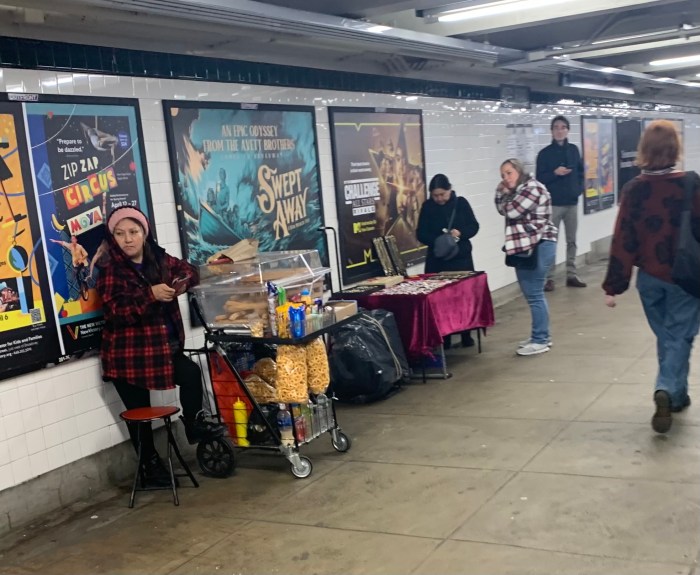
Obtaining a permit, however, is not that simple of a process. There are exceptions to permit rules. For many street and subway vendors who speak English as a second language, securing the right permits and licenses for their sales becomes even more difficult on top of a complex system of rules and processes to navigate.
For example, NYC’s 311 system states online that a General Vendor License is not necessary to sell food. However, in another part of the website, the system states that to sell food or drinks from a pushcart or truck, vendors need a Mobile Food Vending Permit and a Mobile Food Vending License.
According to the MTA, selling goods and food in the subway system, regardless of having a permit, goes against NYC Transit’s rules of conduct, and the NYPD is responsible for enforcing those rules.
“Vending within the transit system is unlawful, and the NYPD continues to address this condition through enforcement, which may include ejection, summons, and/or arrest,” a spokesperson for the NYPD’s Deputy Commissioner of Public Information said. “The NYPD has issued over 300 summonses this year for unlawful selling or soliciting in transit.”
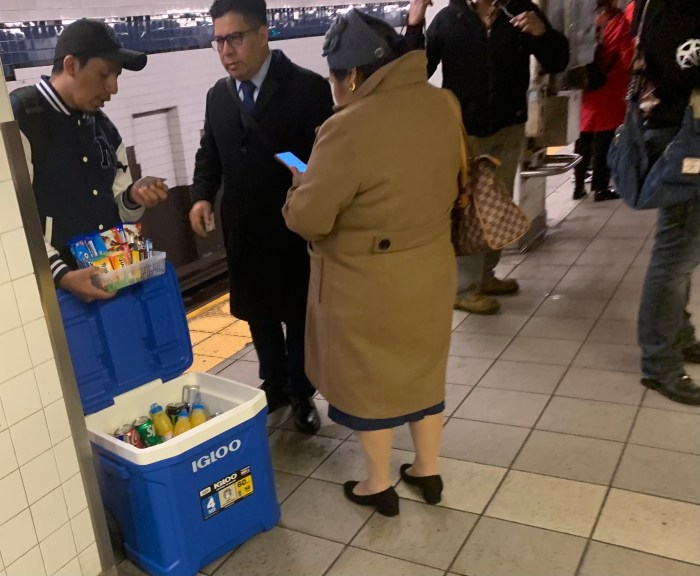
Vendors want permits and are ‘fed up,’ too
Street vending, with or without permits and above or below ground, has been a part of NYC culture throughout most of its history. In yesteryears, many street and subway vendors were foreign-born. Today, about 96% of them are immigrants.
“Street vending has been a fabric of NYC since its inception,” said Mohamad Attia, managing director of the Street Vendor Project at the Urban Justice Center. “Essentially, these people have been selling in the streets, making a living, and a vast majority of vendors today are immigrants.”
A September survey conducted by organizations including George Mason University and the Immigration Research Initiative, a group that studies immigration integration in the United States, found that there were about 23,000 street vendors in total as of last year.
Of those surveyed, many vendors came from Mexico (30%), Ecuador (24%), Egypt (20%) and Senegal (7%).
About 75% of the food vendors in the survey were unlicensed. Advocates attribute that to laws passed in 1979 and 1983, which capped the number of licenses the city provided. A lack of permits also leads to a lack of government regulation and oversight of vendors selling food and other goods.
“Many people are not aware that vendors are not allowed to obtain a license right now,” Attia said. “Funny enough, vendors are required to have a license, and if they sell food, they are required to have a license and a permit, but they are not allowed by the city government to obtain that license or permit that is required for them to be considered a legal business.”
Attia argued that the system is set up to fail anyone wanting to obtain proper permits. The city caps general vendor licenses for non-veterans at 853, and food vendor permits at around 3,000.
Thousands of potential vendors are on excruciatingly long lists to get the proper licenses and permits. As a bright spot for vendors, a 2021 NYC Council bill, called Local Law 18, created 445 more licenses for food vendors to get each year. But more progress is needed, according to Attia.
“Street vendors are also fed up with how outdated the vending system is. We need to see real change,” he explained. “We need to see a system that is functioning, serving vendors, but also serving New Yorkers, consumers, and everybody in the city.
Support for the vendors
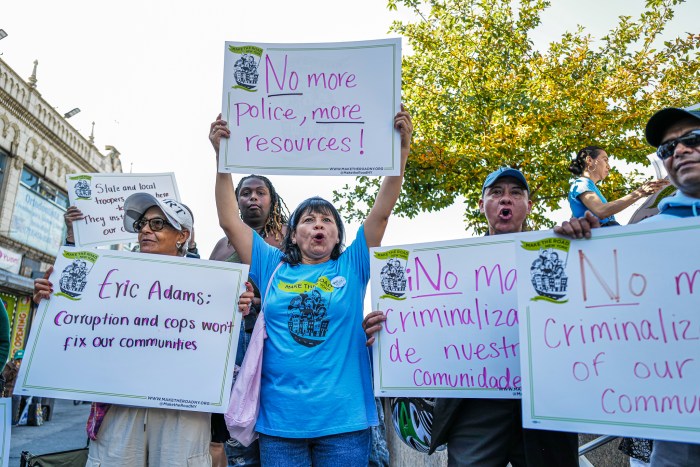
However, not all New Yorkers want illegal vendors out of the subways. Many commuters told amNewYork they support the vendors’ efforts to make a living—and even said they have gotten some tasty treats from the sales.
“Myself as a Latino, I see the Latino community coming around selling and there’s a need for everything,” Joseph Deleon from Brooklyn said. “Basically, they are selling food to get money. Money is needed for living here in the United States. Without money, you can’t live.”
He said the vendors work hard to support themselves and their families.
“They are showing how hard they work to thrive to gain a better life,” adding that the churros he has had in the subway are “really good.”
Maddy Edalow, a New Yorker who uses the subway system, said she “100% supports” vendors on trains.
“I think that people looking to work in this country should be allowed to work,” she said.
Another commuter from Staten Island said she “couldn’t care less” about licensing issues and even raved about some of the food that the vendors sell.
“It’s some of the freshest stuff you can find around,” she said.



